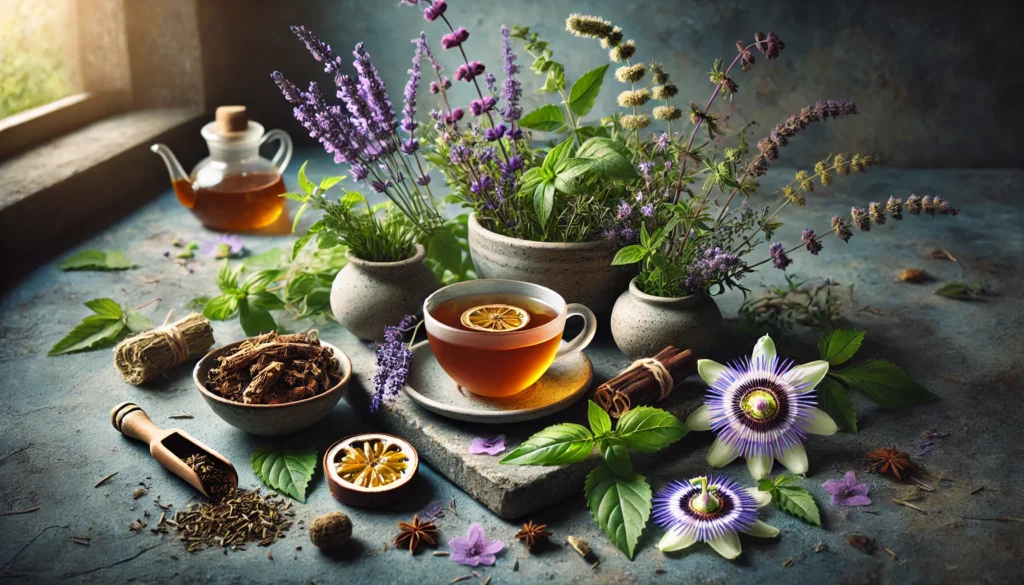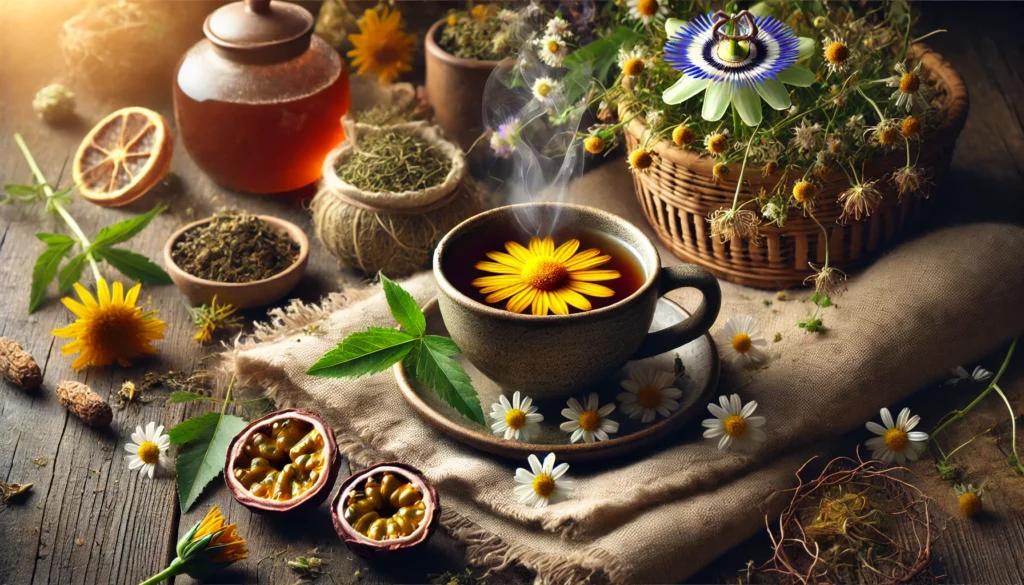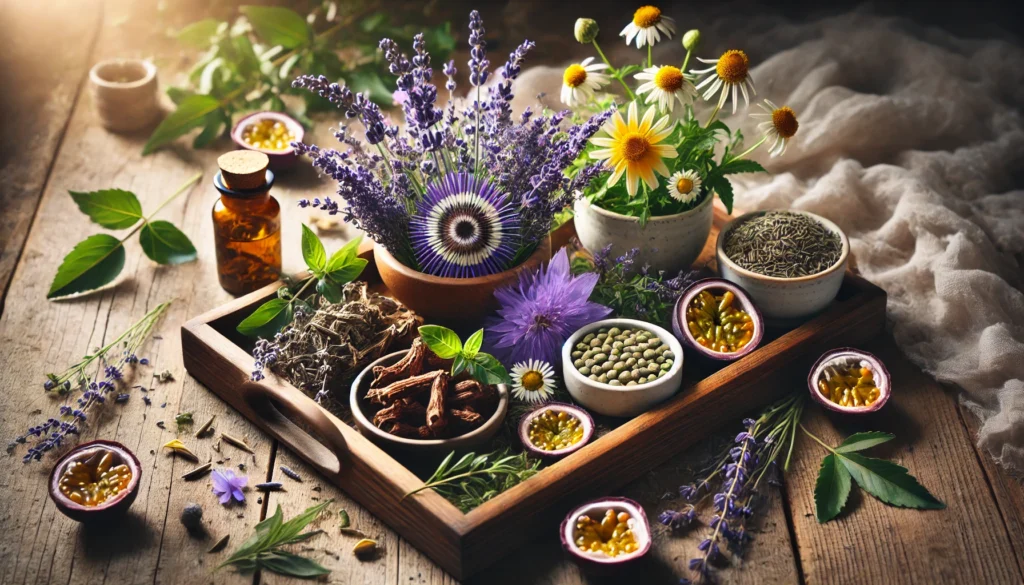Mood swings are characterized by rapid changes in mood, often appearing suddenly and without apparent reason. They can range from mild to severe, impacting daily life, relationships, and overall well-being. While mood swings can be attributed to various factors, including stress, hormonal changes, and underlying health conditions, herbal remedies have historically been used as natural solutions to manage emotional fluctuations.
Causes of Mood Swings
Several factors contribute to mood swings, including lifestyle choices, dietary habits, and environmental influences. Stress is a significant trigger, often exacerbating emotional instability. Hormonal imbalances, particularly during puberty, menstruation, pregnancy, and menopause, can also lead to fluctuations in mood. Additionally, underlying health conditions such as thyroid disorders and neurological conditions play a crucial role.
Psychological Impact
Mood swings can have a profound psychological impact, affecting self-esteem and leading to feelings of helplessness and frustration. The unpredictability of mood changes can strain relationships with family, friends, and colleagues. Over time, this can lead to isolation and, in severe cases, contribute to the development of anxiety and depression.
Importance of Natural Remedies
Natural remedies offer a holistic approach to managing mood swings, focusing on balancing the body and mind. Unlike pharmaceutical options, herbal treatments often have fewer side effects and can be used as part of a broader wellness strategy. By addressing the root causes and promoting overall well-being, these remedies support emotional health in a more sustainable way.
You May Also Like: Top Brain Health Product Brands Reviewed
Historical Context of Herbal Remedies
Herbs have been a cornerstone of traditional medicine for centuries. Ancient civilizations, including the Egyptians, Chinese, and Native Americans, utilized plants to treat a range of ailments, including mood disorders. The knowledge of which herbs to use and how to prepare them was often passed down through generations, forming the foundation of what we now consider modern herbalism.
Ancient Civilizations and Herbalism
The Egyptians were among the first to document the use of herbs for medicinal purposes, with texts dating back thousands of years. They used herbs like frankincense and myrrh for their calming properties. Similarly, Traditional Chinese Medicine has long employed herbs such as ginseng and reishi to balance qi and improve emotional health.
European Herbal Traditions
In Europe, herbalism flourished during the Middle Ages, with monasteries serving as centers of herbal knowledge. Herbs such as lemon balm and valerian were cultivated in monastery gardens for their soothing effects on the mind and body. The Renaissance period saw a resurgence in botanical studies, further expanding the understanding of herbal applications.
Indigenous Herbal Practices
Indigenous cultures have also contributed significantly to the knowledge of herbal remedies. Native American tribes, for instance, used herbs like sage and tobacco in spiritual ceremonies to promote mental clarity and emotional balance. These practices highlight the spiritual and emotional dimensions of herbal medicine, emphasizing its role in holistic healing.

Popular Herbal Remedies for Mood Swings
St. John’s Wort
St. John’s Wort is one of the most renowned herbs for mood support. Historically used by the Greeks and Romans, it has been extensively studied for its antidepressant properties. The herb is believed to work by increasing levels of serotonin, dopamine, and norepinephrine in the brain—neurotransmitters associated with mood regulation.
Mechanism of Action
St. John’s Wort contains active compounds such as hypericin and hyperforin, which are thought to inhibit the reuptake of neurotransmitters, thus enhancing mood. This mechanism is similar to that of conventional antidepressants, making it a popular natural alternative for mood stabilization.
Research and Efficacy
Numerous studies have demonstrated the efficacy of St. John’s Wort in treating mild to moderate depression. It is widely used in Europe and has been shown to have fewer side effects compared to standard antidepressants. However, its effectiveness can vary, and it may interact with other medications, necessitating caution.
Usage and Considerations
While St. John’s Wort is available in various forms, including capsules, teas, and tinctures, dosage and usage should be carefully monitored. Consulting with a healthcare professional is recommended, particularly for those taking other medications or with pre-existing health conditions.
Valerian Root
Valerian root is another ancient remedy commonly used to treat anxiety and insomnia, which can often accompany mood swings. Known for its calming effects, valerian root may help stabilize mood by soothing the nervous system. This herb has a long-standing history in European folk medicine, where it was traditionally used to ease nervous tension.
Calming Properties
Valerian root is rich in compounds such as valerenic acid, which interact with gamma-aminobutyric acid (GABA) receptors in the brain. This interaction promotes relaxation and reduces anxiety, providing relief from the emotional turbulence associated with mood swings.
Historical Usage
Throughout history, valerian root has been valued for its sedative properties. In ancient Greece and Rome, it was used to treat conditions ranging from insomnia to headaches. During World War II, it was employed in England to alleviate stress and anxiety during air raids.
Modern Applications
Today, valerian root is widely used in herbal teas and supplements aimed at promoting relaxation and improving sleep quality. It is generally considered safe, but some individuals may experience side effects such as dizziness or stomach upset. As with any supplement, professional guidance is advised.
Ashwagandha
Ashwagandha, an adaptogenic herb, is hailed for its ability to help the body manage stress. By modulating cortisol levels, it can aid in balancing mood swings. Used in Ayurvedic medicine for over 3,000 years, ashwagandha is also known for enhancing energy, concentration, and overall mental clarity.
Adaptogenic Benefits
As an adaptogen, ashwagandha helps the body adapt to stress by regulating the production of stress hormones. This balancing effect can improve resilience to stressors, leading to a more stable mood and emotional state.
Traditional and Modern Uses
In Ayurveda, ashwagandha is often used to support mental health and vitality. It is believed to enhance the body’s ability to cope with physical and emotional stress. Modern research supports these traditional uses, with studies indicating its potential in reducing symptoms of anxiety and depression.
Usage Guidelines
Ashwagandha is typically available in powder, capsule, or tincture form. It can be integrated into daily routines as a supplement or added to foods and beverages. As with all herbal remedies, it is important to follow recommended dosages and consult with a healthcare provider, especially for individuals with specific health concerns.

Scientific Insight into Herbal Mood Support
Lavender
Lavender is widely acclaimed for its soothing fragrance and calming properties. Scientific studies have shown that lavender oil can reduce anxiety and improve mood through its effects on the nervous system. The active compounds in lavender interact with neurotransmitters, promoting relaxation and mood stabilization.
Aromatherapy and Relaxation
Lavender is a staple in aromatherapy, where its essential oil is used to promote relaxation and alleviate stress. Inhaling lavender scent has been shown to have immediate calming effects, making it a popular choice for managing mood swings naturally.
Clinical Research
Research has demonstrated that lavender can be effective in reducing anxiety and improving sleep quality. Studies suggest that it may be particularly beneficial for individuals with generalized anxiety disorder and subclinical depression, offering a natural alternative to pharmaceutical options.
Practical Applications
Lavender can be used in various forms, including essential oils, teas, and topical applications. It is often used in massage therapy and bath products to enhance relaxation. While generally safe, individuals with allergies or sensitivities should use lavender products with caution.
Chamomile
Chamomile is often consumed in tea form and is recognized for its calming effects. Research supports its use for reducing anxiety and depression symptoms. The flavonoids in chamomile are believed to bind to receptors in the brain, offering a gentle yet effective way to manage mood swings.
Active Components
Chamomile contains apigenin, a flavonoid that binds to benzodiazepine receptors in the brain. This binding action produces a mild sedative effect, helping to soothe anxiety and promote a sense of calm.
Historical and Cultural Significance
Used for centuries in various cultures, chamomile has been a go-to remedy for relaxation and digestive health. Its calming properties have made it a staple in traditional medicine practices around the world, from ancient Egypt to modern Europe.
Consumption and Benefits
Chamomile is most commonly consumed as a tea, providing a simple and enjoyable way to unwind. It is also available in extracts and topical applications. When used appropriately, chamomile is considered safe, though it should be avoided by individuals with allergies to plants in the daisy family.
Rhodiola Rosea
Rhodiola Rosea is another adaptogenic herb known for its mood-enhancing properties. It has been used in traditional medicine in Russia and Scandinavia to combat fatigue and improve emotional well-being. Scientific studies suggest that Rhodiola may help balance neurotransmitters, contributing to mood stabilization.
Stress Reduction and Energy Boost
Rhodiola is praised for its ability to reduce stress and enhance physical and mental performance. It is believed to work by influencing serotonin and dopamine levels, leading to improved mood and cognitive function.
Traditional Uses and Modern Research
Historically, Rhodiola was used by Vikings and Siberian communities to enhance endurance and resilience. Modern research supports these traditional claims, showing potential benefits for reducing symptoms of stress, depression, and anxiety.
Usage and Safety
Rhodiola is typically consumed in capsule or tablet form, with recommended dosages varying based on individual needs. While it is generally well-tolerated, potential side effects include dizziness and dry mouth. As with all supplements, consultation with a healthcare provider is advisable, particularly for those on medication or with health concerns.

Conclusion
Incorporating herbal remedies into a wellness routine offers a natural and holistic way to manage mood swings effectively. By addressing underlying causes such as stress, hormonal imbalances, and neurotransmitter fluctuations, herbs like St. John’s Wort, ashwagandha, and Rhodiola Rosea provide valuable support for emotional stability. While these natural solutions can be beneficial, they should be used mindfully and in consultation with a healthcare professional, especially for those with existing health conditions or taking medications. With the right approach, herbal remedies can complement lifestyle changes, fostering long-term emotional balance and overall well-being.
Further Reading:
Herbs and supplements for depression
Natural remedies for depression: Are they effective?
7 Vitamins and Supplements That May Be Helpful for Bipolar Disorder
Important Note: The information contained in this article is for general informational purposes only, and should not be construed as health or medical advice, nor is it intended to diagnose, prevent, treat, or cure any disease or health condition. Before embarking on any diet, fitness regimen, or program of nutritional supplementation, it is advisable to consult your healthcare professional in order to determine its safety and probable efficacy in terms of your individual state of health.
Regarding Nutritional Supplements Or Other Non-Prescription Health Products: If any nutritional supplements or other non-prescription health products are mentioned in the foregoing article, any claims or statements made about them have not been evaluated by the U.S. Food and Drug Administration, and such nutritional supplements or other health products are not intended to diagnose, treat, cure, or prevent any disease.


